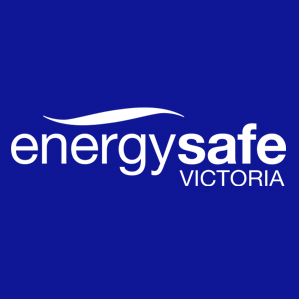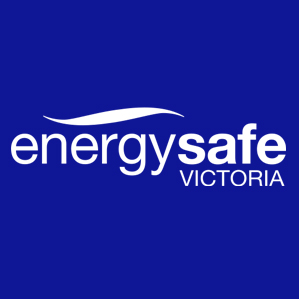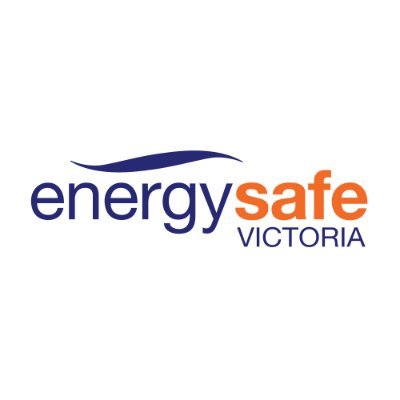Title Page
-
Site conducted
-
Conducted on
-
Prepared by
3. General Safety Requirements
3.1 Hazard identification, risk assessment and control
-
Have appropriate control measures been implemented for the task?
-
Has the JSA been revisited when work changes?
3.5 Use and testing of operating equipment
-
Are all testing and operating equipment approved for the particular application?
-
Are all testing and operating equipment in test date?
-
What is the expiry date of the test and tag?
-
Do all testing and operating equipment show the date of next routine test?
-
Are all testing and operating equipment visually inspected immediately prior to use?
3.6 Insulating sticks
-
Do insulating sticks have a length that provides appropriate insulation from live parts and enables a person using the stick to maintain the applicable safe approach distance at all times?
-
Has consideration been given to the potential for hazardous surface leakage currents when using insulating stick in wet conditions?
3.8 Ladders
-
Are all ladders used on, near or in the vicinity of, exposed live electrical apparatus nonconductive?
3.9 Personal protective equipment
-
Are all persons who may be exposed to possible electric shock, arc flash or other injury from electrical apparatus wearing approved personal protective equipment?
-
Does PPE include clothing with wrist to ankle cover and fully enclosed footwear?
-
Is additional PPE used in accordance with the type of work and the risks involved?
3.10 Tapes and other measuring devices
-
Are all tapes and rulers used in the vicinity of live electrical apparatus approved nonconducting?
4. Training and Authorisation
4.1 General
-
Is all work crew authorisations current for the task being performed?
-
Is all work crew training current for the task being performed?
5. Work in the Vicinity of Electrical Apparatus
5.3 Handling Objects/Loads
-
When objects are being handled manually or by mechanical equipment, has care been exercised to prevent the objects or the mechanical equipment infringing safe approach distances?
-
For manual handling, has an appropriate work method and an appropriate number of persons been used to maintain safe approach distances?
6. Approach to Electrical Apparatus
6.1 General
-
Has the work party established work practices to ensure persons, mobile plant and unapproved objects do not encroach on the safe approach distances?
-
Has unnecessary approach to electrical apparatus or unnecessary contact with parts not regarded as live been avoided?
-
Has necessary approach to electrical apparatus been kept to a minimum and restricted to the period required to perform the work?
-
Has proper consideration of the work space necessary been applied and either working beyond reach or the use of controlled movements to stay outside the SAD measured out from the energised conductor?
6.2 Safe Approach Distance - Persons
-
Are all testing and operating equipment approved for the particular application?
-
Are all testing and operating equipment in test date?
-
What is the expiry date of the test and tag?
-
Do all testing and operating equipment show the date of next routine test?
-
Are all testing and operating equipment visually inspected immediately prior to use?
6.2.1 Safe Approach Distance - Normal
-
Have instructed persons been instructed by an authorised person or under supervision when working to instructed persons SAD?
-
Have workers deliberately avoided movement which could result in distances being infringed?
-
Is work being undertaken from a stable surface?
-
Has appropriate allowance been made for conductor sag and sway?
6.8 Approach to Live High Voltage Insulated Cables
6.8.1 General
-
When work is performed near live high voltage insulated cables, have appropriate precautions been taken to ensure that the insulation of the cables is not damaged?
7. WoodScan Inspection
-
Was pole visualy inspected from top of pole to groundline?
-
Was a visual inspection of pole cap condcuted to check pole cap was secured or missing?
-
Was pole excavated to at least 300m and surface and cracks probed?
-
Was sounding of pole carried out around circumference of pole from maximum reach down into excavation?
-
Was pole drilled towards centre of pole and in accordance with MEC test hole requirements?
-
Was preservative treatment applied and holes sealed after treatment?
-
Was girth measured where external decay was visible and pole diameter reduced?
-
If pole was leaning, was degree of lean assesed?
-
If fitted, was an inspection of ground stay condcuted?
-
If pole is reinforced / staked, were screws and bolts tightened and fastening system security inspected?
-
Did Inspector make appropriate determination of pole serviceability?
-
Was the appropriate priority and damage codes recorded?
-
Was labelling and marking required to identify changes in the condition status of the pole installed?
-
If appropriate, was assessment for staking carried out?
-
Was site cleaned up and pole backfilled?
8. Concrete and other Pole Inspection
-
Was pole visualy inspected from top of pole to groundline?
-
Was a condition assessment of the pole condcuted to identify cracks, pole girth deterioration and overall shape of the pole?
-
Was a test / examination of the pole condcuted to assess corrosion or vehicle impact?
-
Were steel poles excavated and excess rust removed?
-
If pole was leaning, was degree of lean assesed?
-
If fitted, was an inspection of ground stay condcuted?
-
Did Inspector make appropriate determination of pole serviceability?
-
Was the appropriate priority and damage codes recorded?
-
Was labelling and marking required to identify changes in the condition status of the pole installed?
-
Was site cleaned up and pole backfilled?
9. Line Hardware Assessment
-
Was a visual inspection of the crossarm condcuted?
-
Was a visual inspection of the hardware condcuted?
-
Was an ispection of speaders condcuted or assesssmnet of requirement assessed?
-
Was a visual assessment of LV service condition and fittings conducted?
-
Was the condition of condcutors, cables, connectors and ties condcuted?
-
Was an assessment of pole mounted assets condcuted?
-
Was vegitation clearance surroundoing the pole, condcutros and cables assessed?
-
Was ground clearance of aerial lines assessed?
-
Was the appropriate priority and damage codes recorded?
10. Prepare for Woodscan
-
Was pole visualy inspected from top of pole to groundline?
-
Was pole excavated to at least 300m and surface and cracks probed?
-
Was sounding of pole carried out around circumference of pole from maximum reach down into excavation?
-
Are datum nails installed at approximately 2200mm above ground level?
-
Are test level nails installed below ground level?
-
Are stake level nails installed at approximately 1000mm above ground level?
-
Was pole drilled towards centre of pole and in accordance with MEC test hole requirements?
-
Was preservative treatment applied and holes sealed after treatment?
-
Did Inspector make appropriate determination of pole serviceability?
-
Was the appropriate priority and damage codes recorded?
-
Was labelling and marking required to identify changes in the condition status of the pole installed?
-
If appropriate, was assessment for staking carried out?
-
Was site cleaned up and pole backfilled?
11. Record Pole Information
-
Pole height recorded?
-
Pole details recorded?
-
Pole diameter recorded?
-
Pilodyn measurements recorded?
-
Data level measurements recorded?
-
Test level measurements recorded?
12. Complete Woodscan Inspection
-
Were two deep drill inspection holes drilled if past or active termites identified?
-
Was preservative treatment applied and holes sealed after treatment?
-
Did Inspector make appropriate determination of pole serviceability?
-
Was the appropriate priority and damage codes recorded?
-
Was labelling and marking required to identify changes in the condition status of the pole installed?
-
If appropriate, was assessment for staking carried out?
-
Was site cleaned up and pole backfilled?
13. Sign-Off
-
Signature









